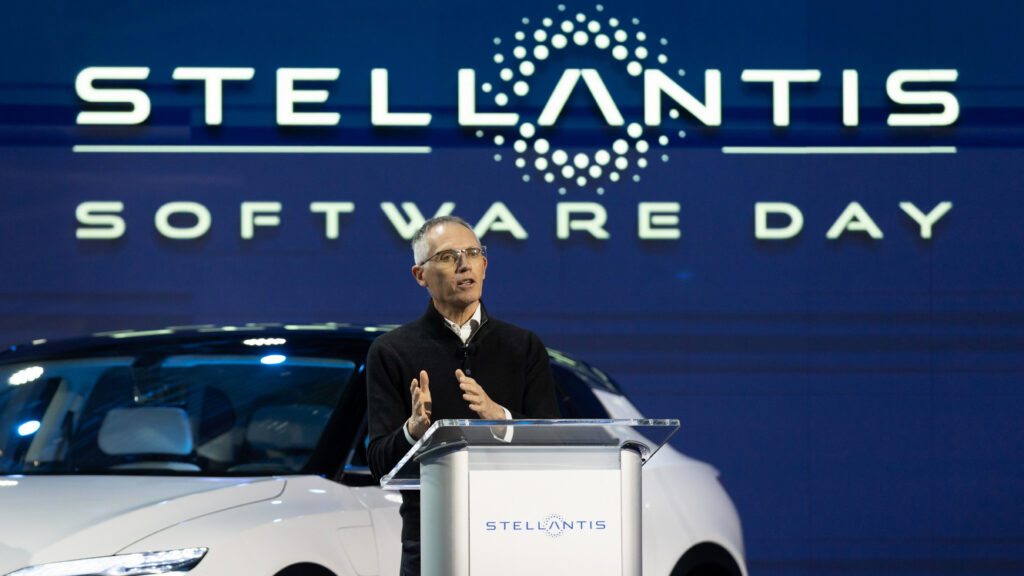- Stellantis has let go of hundreds of temporary works across the United States.
- Company boss Carlos Tavares walked away with $39 million in total compensation last year.
- UAW president Shawn Fain has described the carmaker as “pathetic.”
UAW president Shawn Fain has hit out at Stellantis over recent employment cuts, which occurred less than a year after the union secured a new long-term contract with the car manufacturer.
Stellantis said it would invest an additional $19 billion into the U.S., increase wages by 25%, and provide more than 3,000 temporary workers with full-time employment as part of its new contract with the UAW. Despite this, Stellantis recently fired 199 full-time workers at the Ram 1500 plant, axed 400 engineering, technology, and software jobs in March, and will also reduce its Italian workforce by 8%.
Read: GM Boss Earned $27.8 Million Last Year But Stellantis CEO Led The Way With $39 Million
“Stellantis is pathetic,” Fain said in a recent Facebook broadcast with UAW members. “Honestly, the leadership is pathetic. You got a CEO over there across the pond that wants to talk about how they need to cut costs and all this stuff, but it didn’t stop him from giving himself a 56 percent pay increase.”
Stellantis chief executive Carlos Tavares earned $39 million last year, easily eclipsing the $27.8 million earned by GM boss Mary Barra and the $26.5 million earned by Ford CEO Jim Farley.
The UAW appears particularly upset at Stellantis for firing many temporary workers. The company said it would provide 3,200 temporary workers full-time employment within a year. Stellantis usually uses these supplemental employees to fill absences or calls on them when a plant needs more workers.

Despite its contract with the UAW, Stellantis axed 539 supplemental employees across the United States in January and 341 in March.
“One of the reasons they had the different tiers and they had the temps was to give them some flexibility,” Cornell University labor relations expert Art Wheaton said. “From the union’s perspective, the union always wants job security, and from the company’s perspective, they always want flexibility. So if the temporaries are going to become permanent, it reduces the flexibility for the company. And they say, ‘Gee, if I don’t have to make them permanent, maybe we can just lay them off.'”




